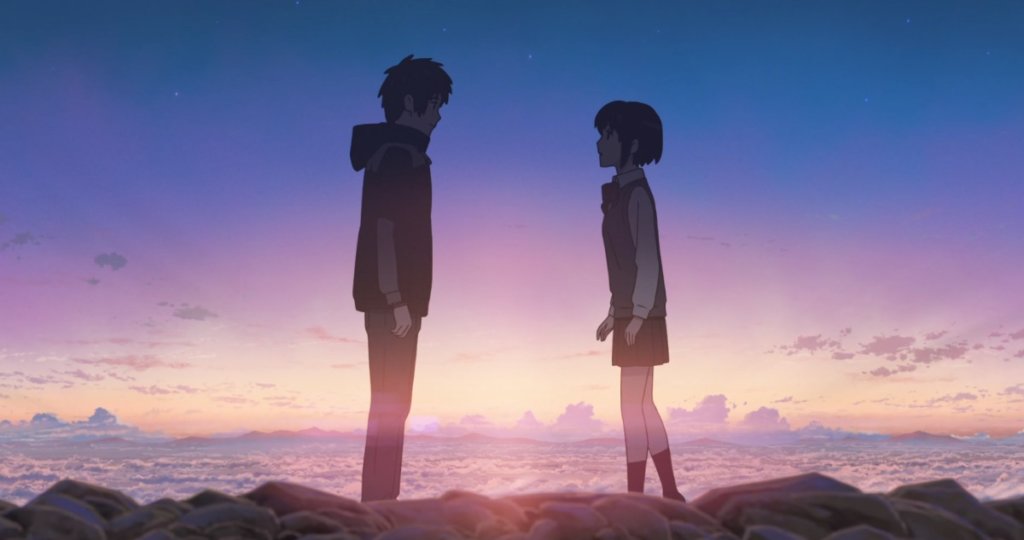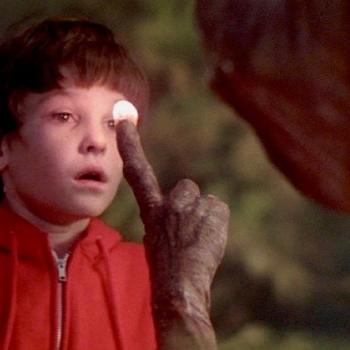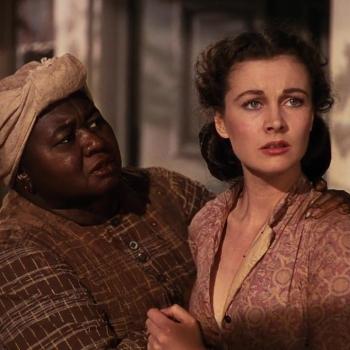
The concept of divine destiny or foreordination can be a highly contested one in religious circles. For some, the idea that God sends us all here with certain programming embedded in us or that God predetermines how our lives play out feels like a violation of our own autonomy.
And yet, how many of us have had moments where we’ve glimpsed the hand of the puppeteer? Been privy to something from the other side of the curtain, some confluence of circumstance that could not have possibly been orchestrated by temporal hands? Maybe just had a feeling, an awareness of something that couldn’t merely be explained with the language of modern convention.
I’ve spoken about films that imagine such scenarios. Eternal Sunshine of the Spotless Mind has that kind of extra-temporal setup when Joel and Clementine find each other again even though their memories have been wiped, as though the love they once shared has divinely bound them together. It’s this same fascination that drives me to write today about, Makoto Shinkai’s 2016 film Kimi no Na wa “Your Name.”
In the film, Mitsuha and Taki are two teenagers living on opposite ends of Japan. They have nothing in common … except that they somehow are switching bodies spontaneously through some unknown magical intercession. These random convergences are something of an inconvenience for these two kids who have enough to manage in their own lives without being thrown into someone else’s frying pan. But in learning to mutually work around each other’s lives, they discover a building investment in one another, a connection they could not have anticipated.
The true power of this connection becomes apparent to them once these switches stop unexpectedly. Taki does some investigating, and learns that Mitsuha’s hometown, Itomori, was actually eliminated by a stray comet three years earlier–his connection to her transcended not just space, but time as well, and there will be greater leaps to make if Taki and Mitsuha are to set things right. Taki visits a shrine sacred to Mitsuha’s family and enables one final switch, taking him back to the day that the comet wiped out Itomori, and together, they work together to evacuate the town and save the lives of everyone in Itomori.
But something is lost once the connection is broken: neither Taki nor Mitsuha can recall each other’s names, their out-of-body experiences, nor the role they played together in stopping the end of one world. But some time later, they happen across each other in Tokyo, and the spark relights, an echo of a world-spanning bond, and ask each other for their name.

The connections by which these things transpire in Your Name have more in common with Japanese spiritualism than traditional western religiosity, but there are transferable principles here to things like American Christianity. Could we not call it divine that Mitsuha and Taki were able to cross time and space to find each other? Was it not foreordination that they were in a position to save the entire city from annihilation? Can we not call that second glance they gave one another in Tokyo some residue of a celestial connection?
None of this talk of divine destiny is to imagine that their individual agency has no part in this. Their road to overturning this cataclysm demands that they assert themselves and take big leaps and frustrate their environments. For Taki, it means travelling to the countryside to find out what happened to the city. For Mitsuha, it means confronting her authoritative father and forcing him to evacuate the mountain.
Part of the reason why the film is so satisfying is the sheer hyperdrama of it all. The desperation they feel to see each other, to save each other. Both characters experience a moment just when the comet starts to fall where they realize that they cannot remember each other’s names, that this entire time-shattering bond they’ve built has completely disintegrated. It’s one of the most devastating moments of the film when it looks like they might succumb to the veil, and imagine that this extraordinary experience they had, this budding sense of displacement, was nothing more than a dream. After the fact, Taki recalls having obsessed over Itomori “the town that vanished” but can’t put words to why.
When they meet each other again in Tokyo years after the event, they find that they recognize one another. Their memories of the transcendent event were erased, as often happens when travelling through celestial planes, but the threads that bound them remain. The impact they left on each other’s lives survives the passage through the veil. If they had been content to just write it off as brain synapses misfiring, he and Mitsuha would have never found each other again, never restored the connection.
There’s a similar risk when we choose to discount the existence of the divine things in our life, whatever shape they take. Though we sometimes lack the vocabulary to articulate it, when we open our eyes to the divine, it can be like, as both Mitsuha and Taki describe, “a scene from a dream, nothing less than a beautiful view.”














